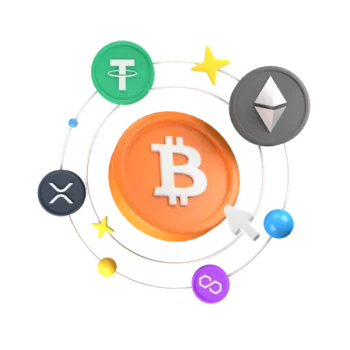CFTC
Commodity Futures Trading Commission (CFTC)
Terrorism financing is one of the most critical threats facing the global financial system today. While much attention is focused on traditional financial sectors, an often-overlooked arena for illicit activity is the commodities and futures market. The Commodity Futures Trading Commission (CFTC) plays a vital role in preventing the misuse of these markets for terrorism financing. We’ll explore how the CFTC combats terrorism financing, its regulations, and why its role is crucial in maintaining the integrity of the global financial system.
What is the CFTC?
The Commodity Futures Trading Commission (CFTC) is an independent federal agency established in 1974. Its primary role is to regulate the U.S. derivatives markets, including futures, options, and swaps. By overseeing these markets, the CFTC helps ensure they function smoothly, transparently, and with integrity.
The CFTC’s responsibility extends beyond market regulation. It also serves as a critical watchdog, ensuring that these markets are not used for illegal purposes, including terrorism financing.
The Link Between Commodities Markets and Terrorism Financing
Terrorists and criminal organizations are constantly seeking new ways to move and launder money. While banking and traditional financial systems have long been under scrutiny, the commodities and futures markets offer alternative avenues for hiding and moving funds. Terrorist groups may exploit these markets to transfer large sums of money without raising immediate suspicion.
How Terrorists Exploit These Markets
- Commodity Trades: Terrorist organizations can move money through commodity trading, making it appear as legitimate business transactions.
- Futures Contracts: Futures contracts, which allow for the buying and selling of commodities at predetermined prices in the future, can be manipulated to hide money transfers.
- Shell Companies: Setting up shell companies to engage in commodity and futures trading is another method used by terrorist networks to launder funds.
The CFTC’s Role in Preventing Terrorism Financing
The CFTC has taken several steps to mitigate terrorism financing risks within the derivatives markets. By implementing stringent regulations and collaborating with international bodies, the commission actively monitors suspicious activities and enforces compliance. Here’s how the CFTC contributes to the fight against terrorism financing:
Increased Market Oversight
The CFTC uses sophisticated monitoring systems to analyze trading activities in real-time. This allows the agency to detect unusual or suspicious trades that could be linked to terrorism financing. For instance, large trades in commodity futures that don’t align with market conditions may trigger further investigation.
Regulatory Compliance
The CFTC requires all market participants to adhere to strict anti-money laundering (AML) and counter-terrorism financing (CTF) regulations. Traders, brokers, and financial institutions must report suspicious transactions and keep accurate records of their trading activities. Failure to comply can lead to heavy penalties, fines, or even revocation of trading licenses.
Collaboration with Global Agencies
The CFTC collaborates with various international organizations, such as the Financial Action Task Force (FATF) and Interpol, to track and prevent terrorism financing activities that span across borders. This global cooperation is critical because terrorists often operate in multiple jurisdictions, making it difficult for any one nation to tackle the problem on its own.
Enforcement Actions
The CFTC has the authority to launch investigations and take legal action against individuals or companies suspected of engaging in illegal activities, including terrorism financing. Recent enforcement actions have resulted in millions of dollars in fines and penalties against those violating U.S. financial regulations.
Challenges Faced by the CFTC in Combating Terrorism Financing
Despite its best efforts, the CFTC faces several challenges in preventing terrorism financing:
- Complexity of Markets: The commodity and derivatives markets are highly complex, with trades occurring across various asset classes, making it difficult to monitor all activities.
- Cross-Border Transactions: Terrorist groups often exploit the international nature of these markets, using offshore entities and shell companies to obscure the origin of their funds.
- Technological Advancements: The rise of cryptocurrency and blockchain technology has added a new dimension to terrorism financing, making it even harder to track illicit transactions.
How Can Market Participants Help?
The fight against terrorism financing cannot be won by regulators alone. Market participants, including brokers, traders, and financial institutions, must be proactive in identifying and reporting suspicious activities. Adopting robust AML and CTF measures, conducting due diligence on clients, and maintaining accurate records are essential steps in safeguarding the market.
The Commodity Futures Trading Commission (CFTC) plays a pivotal role in combating terrorism financing within the commodities and futures markets. Through its vigilant oversight, regulatory enforcement, and collaboration with international bodies, the CFTC ensures that these markets are not used as tools for funding terrorism. However, continued vigilance from both the regulatory authorities and market participants is crucial to winning the fight against this global threat.
By staying informed and compliant, market participants can contribute to a safer and more secure global financial system.









